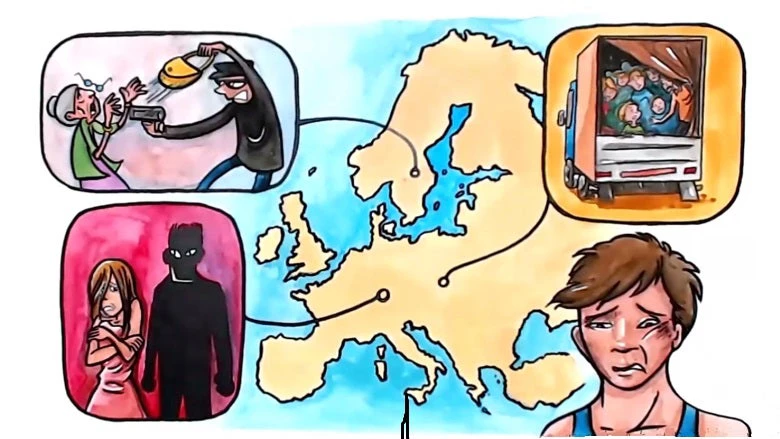
The news is filled with stories of crime & violence, law & order. We hear from victims and eyewitnesses. We send thoughts and prayers. But when the spotlight moves on to the next crime or the next city, the victims of crime and their families remain, trying to get back on their feet after an ordeal. Often, these are among the most vulnerable members of our communities.
Victims of crime need services from their governments , ranging from information, support, and protection, whether that be through shelters, hotlines, health and psychosocial services and legal support as they navigate the justice system. A range of international human rights instruments establish principles on the treatment of victims of crime. And, in Europe, a binding Directive establishes minimum standards in EU member states.
The World Bank has entered a new partnership to support our client countries to deliver effective victim support services. Together with Victim Support Europe, the Bank is providing targeted technical assistance to help the Serbian government to establish victims support services as part of their EU accession process. Working closely with government, judiciary and NGOs, the interdisciplinary team has shared international and regional know-how, facilitated stakeholder dialogue, conducted surveys among victim support providers, reviewed legislation, mapped existing institutional arrangements, and made recommendations for improving Serbian law and practice to establish comprehensive victim support services.
Through this work, the team found that an incomplete patchwork of services already exists in Serbia, which bodes well for scaling up service delivery. Existing services, however, fall short of a national system. At present, some services are provided by the courts and prosecutor offices and others by NGOs, but it seems that more than half of victims don’t receive any support.
Victim Support & Victims Rights in Europe
In Serbia, victims are still perceived as witnesses in criminal procedure and a source of evidence . State services focus on assistance during criminal proceedings, mainly providing information, which means that victims miss out if they don’t report the crime or their case is dropped. Furthermore, most services in Serbia are focused on limited groups of victims (such as victims of domestic violence or trafficking), while victims of other crimes have far fewer options. Information is largely conveyed orally, which reduces consistency in service delivery. And there’s little in the way of paper or online resources that victims can peruse and consider.
Limited service provision through the State and lack of a formal referral system from the State actors to NGOs also reduces access. Even where services are available, the organization of the system limits access, especially geographic access as most services are not distributed across the country. This further marginalizes people in rural areas. There is also a lack of coordination between different agencies and NGOs – different actors provide different information or provide it only sometimes. Good examples of information sharing exist, but these rely largely on the goodwill and commitment of individuals rather than embedded practices.
Lack of funding is also a problem for both NGOs and State services. The latter face difficulties when their staff are assigned increasing responsibilities for other services, which comes at the expense of their victim support work. NGOs lack long-term operational funding from State resources, putting greater pressure on them to chase project-based donor funding, which is a time-consuming process that silos service delivery to donor-friendly topics and threatens the sustainability of services.
Basic protection measures are not always in place, such as that victims of sexual violence are interviewed by police officers of the same sex; interview premises are fit for purpose; and victims have separate waiting areas in courts. And limited training is available to judges, prosecutors, police and other justice sector staff to ensure sensitivity and professionalism in dealing with victims of crime.
All in all, the basic foundations for meeting minimum EU standards are in place in Serbia, but legislative and practice gaps, unnecessary duplication and inequalities of service provision between authorities, between geographical locations or between victims groups all need to be addressed.
With the recommendations adopted by the Ministry of Justice, the Serbian justice sector is taking important steps to establish a system that aligns with EU standards. The World Bank and Victim Support Europe will continue to support the process, as part of our commitment to improving justice and service delivery for the most vulnerable.



Join the Conversation